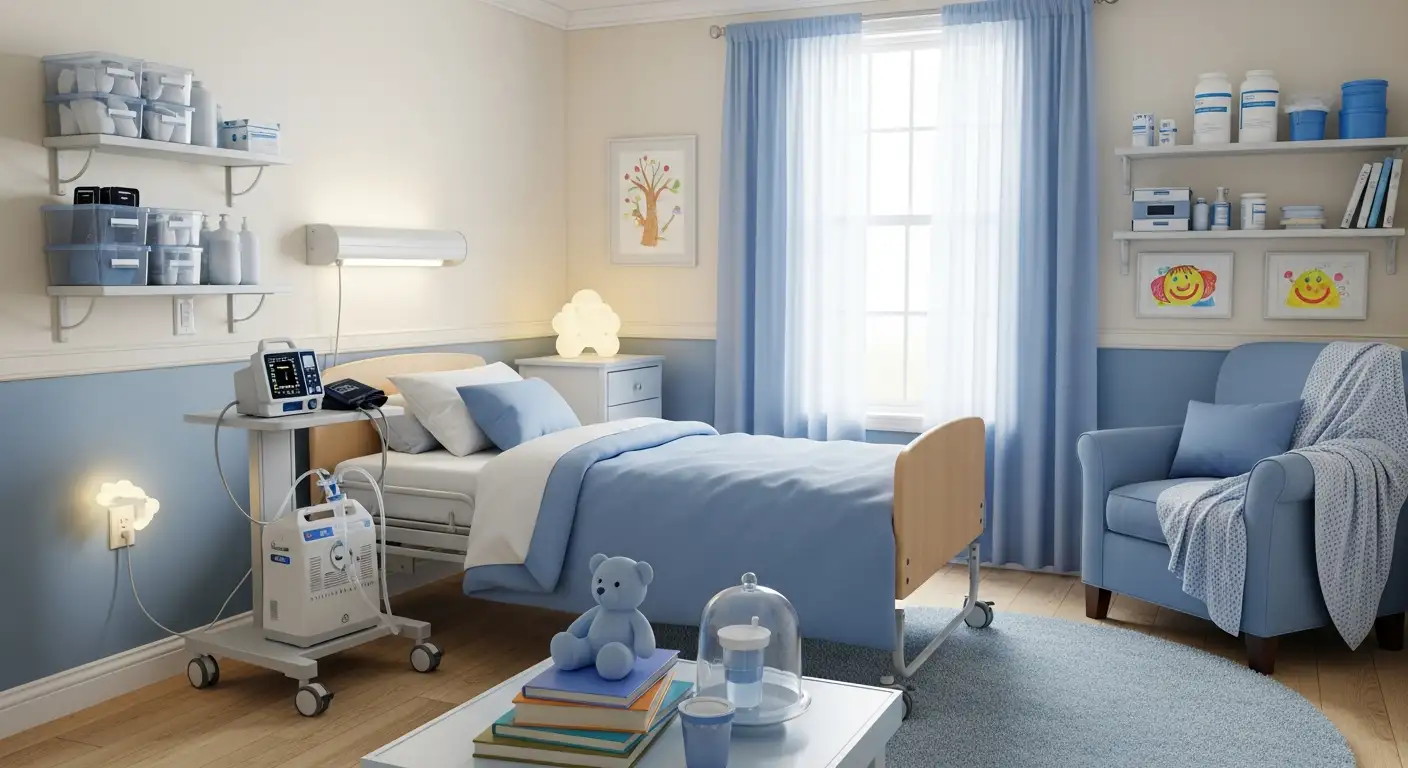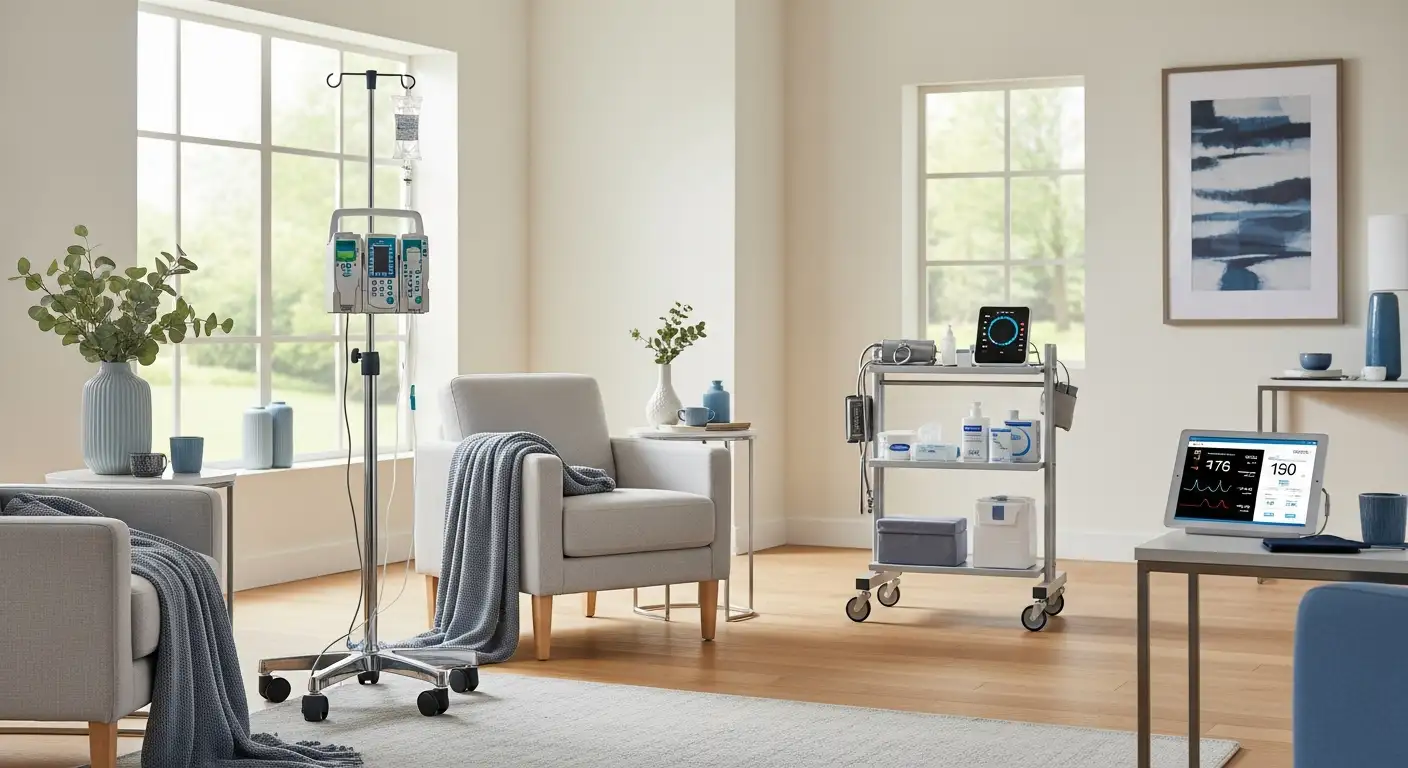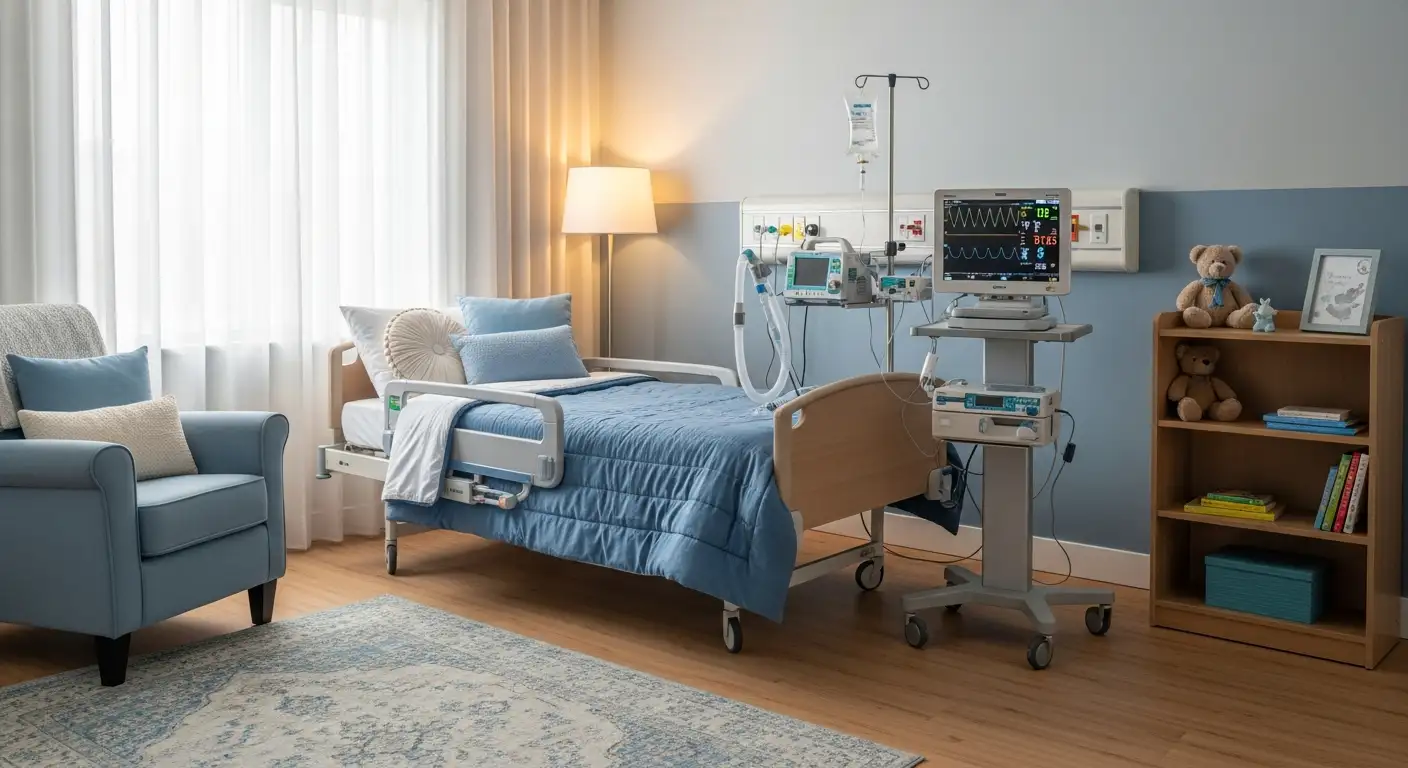Understanding Pediatric Home Care and Its Impact
Pediatric home care has become an essential element in supporting children with neurological impairments by delivering tailored medical and developmental services directly in their familiar home environment. This approach not only facilitates better health outcomes but also improves overall quality of life for children and their families. In this article, we explore how pediatric home care operates, its comprehensive range of services, the benefits it offers, and the resources available for caregivers.
Supporting Children with Neurological Impairments in Their Daily Lives
How does pediatric home care support children with neurological impairments?
Pediatric home care plays a vital role in helping children with neurological impairments live fulfilling lives by offering personalized medical and supportive services directly in their home environment. Skilled healthcare providers, such as registered nurses, physical therapists, speech therapists, and occupational therapists, deliver comprehensive and tailored care plans.
One of the primary aspects of this support involves managing complex medical needs. This includes medication administration, respiratory support like oxygen therapy, and assistance with medical equipment such as feeding pumps and suction devices. These interventions are crucial for children with conditions like cerebral palsy, seizures, or other neurological disorders.
Beyond medical management, home care providers assist with everyday activities to promote safety and independence. This involves helping children with bathing, grooming, mobility, and positioning, ensuring their comfort and dignity. Such support not only helps maintain health but also encourages developmental progress and emotional well-being.
Effective collaboration with healthcare teams is another essential feature of pediatric home care. Providers coordinate closely with doctors, therapists, and insurance agencies to create seamless, integrated care plans. This teamwork ensures children receive consistent treatments, attend therapies, and access necessary equipment without unnecessary hospital visits.
In addition, family involvement is fostered through caregiver training and ongoing support. Home care services often include preparing families to manage specific health needs confidently and comfortably.
Overall, pediatric home care significantly enhances children’s quality of life. It provides a safe, supportive environment where children’s medical, developmental, and emotional needs are comprehensively addressed, helping them thrive in their everyday activities.
The Range of Services in Pediatric Home Care
What services are included in pediatric home care for children with neurological impairments?
Pediatric home care tailored for children with neurological impairments offers a wide variety of services designed to meet their complex medical and developmental needs.
Skilled nursing care is a fundamental component, which includes wound management, IV therapy, and respiratory support. Nurses trained in pediatric care handle tasks like tracheostomy care, ventilator management, and medication administration, ensuring children receive safe and effective treatment in their familiar home environment.
Therapeutic interventions play a vital role, with services such as speech therapy, occupational therapy, and physical therapy. These therapies help promote development, independence, and improve the child's ability to participate in daily activities.
In addition to direct medical and therapeutic services, equipment management and caregiver training are crucial. Families are trained to use devices like feeding pumps, suction machines, and oxygen therapy equipment properly, enabling them to support ongoing needs confidently.
The care provided is personalized, involving multidisciplinary teams—comprising registered nurses, therapists, social workers, and physicians—working together to coordinate care seamlessly. Through models like the Patient-Centered Medical Home, services are integrated and focus on the child's overall well-being.
Support extends beyond physical health. Many programs include mental and behavioral health assistance, health promotion, and disease prevention strategies. Increasingly, telehealth services expand access, providing remote consultations and monitoring.
Overall, pediatric home care aims to enhance health outcomes, reduce hospitalizations, and promote family-centered, community-based care, empowering children with neurological impairments to thrive at home.
Medical and Supportive Care Modalities
Pediatric home health care offers a variety of medical and supportive services designed to meet the unique needs of children with neurological impairments and other complex conditions. These services encompass both clinical treatments and non-medical support to promote health, development, and comfort in the home setting.
Pharmacologic treatments include medication management for seizures, pain, gastrointestinal issues, and other symptoms. Licensed nurses often oversee the administration of drugs such as acetaminophen, morphine, and gabapentin, ensuring proper dosing and monitoring for side effects.
In addition to medications, non-pharmacologic therapies play a vital role. Positioning techniques are used to prevent pressure sores and facilitate comfort, while music therapy and familiar comfort measures help reduce stress and promote emotional well-being.
Support for complex medical equipment is another essential aspect of pediatric home health care. Professionals assist with the management and maintenance of devices like feeding pumps, suction machines, ventilators, and oxygen therapy systems. Proper equipment handling ensures safety and continuous functionality, which is critical for children relying on technological support.
Therapeutic services such as physical, occupational, and speech therapy are incorporated directly into the home. These therapies promote motor skills, communication abilities, and independence, supporting long-term developmental goals.
Care plans are individualized, with providers coordinating closely with pediatricians and specialists. This integrated approach ensures comprehensive care that addresses both medical and emotional needs.
Here is an overview of the types of care offered:
| Care Modality | Description | Additional Details |
|---|---|---|
| Medications | Management of seizures, pain, and other symptoms | Administered by licensed nurses, includes drugs like acetaminophen and morphine |
| Non-pharmacologic therapies | Positioning, music therapy, comfort measures | Enhance emotional well-being and reduce stress |
| Equipment support | Management of feeding pumps, ventilators, oxygen therapy | Ensures safety, proper functioning, and ongoing support |
| Therapeutic services | Physical, occupational, speech therapy | Support development, mobility, and communication |
| Care coordination | Collaborative planning with medical teams | Aims for holistic and seamless care delivery |
By combining these modalities, pediatric home health care creates a supportive environment that fosters health, development, and quality of life for children with complex medical needs.
Resources and Support for Caregivers
 Caring for children with neurological impairments can be both rewarding and challenging, requiring dedicated support systems for families. Fortunately, a variety of resources are available to help caregivers meet their children's complex needs.
Caring for children with neurological impairments can be both rewarding and challenging, requiring dedicated support systems for families. Fortunately, a variety of resources are available to help caregivers meet their children's complex needs.
Organizations like the Child Neurology Foundation serve as vital support hubs, offering programs that connect families with specialized healthcare providers. These organizations provide valuable emotional support, practical guidance, and access to resources tailored to neurological conditions.
Support groups and community-based programs also play an important role. They offer a platform for caregivers to share experiences, gain reassurance, and learn coping strategies. Respite care programs, such as the Lifespan Respite Care Program, provide temporary relief for caregivers by offering trained helpers to care for children. Volunteer programs facilitated by community organizations, such as the Community Care Corps, provide additional hands-on support, reducing caregiver stress and promoting mental health.
Educational resources are crucial for empowering families to manage their children's needs effectively. Many organizations provide informational materials, training sessions, and workshops on managing symptoms, medical treatments, and developmental therapies like speech, occupational, and physical therapy.
Mental health support is also essential. Caregivers often face emotional strain, grief, and financial hardships. Access to counseling services, peer support groups, and mental health programs designed for caregivers can improve resilience and overall well-being.
To maximize available support, caregivers are encouraged to collaborate closely with healthcare teams, seek ongoing education on their child's condition, and implement self-care practices. Leveraging these resources helps create a comprehensive support network, improving the quality of life for both children and their families.
| Resource Type | Examples | What They Offer |
|---|---|---|
| Support Organizations | Child Neurology Foundation | Connect families with specialists, provide emotional support |
| Community Programs | Lifespan Respite Care, Community Care Corps | Respite services, volunteer help |
| Educational Resources | Workshops, online materials | Learning management of medical and developmental needs |
| Mental Health Support | Counseling services, peer groups | Emotional resilience and stress reduction |
Access to these various forms of support enables families to navigate the challenges of neurological impairments more effectively and provides a pathway towards better care and emotional health.
Enhancing Quality of Life Through Pediatric Home Care

How does pediatric home health care improve the quality of life for children with neurological impairments and their families?
Pediatric home health care plays a vital role in improving the daily lives of children with neurological impairments. By providing personalized, continuous medical and supportive services directly in the home, children experience fewer hospital stays and emergency visits, which reduces their stress and promotes stability.
Being cared for in a familiar environment allows children to stay engaged in daily activities and participate more actively in their family and community life. This sense of normalcy and comfort boosts their emotional well-being.
Families benefit significantly from access to skilled caregivers who can manage complex symptoms such as seizures, pain, and respiratory issues. Through tailored symptom management, children’s health is stabilized, making it easier for them to participate fully in everyday routines.
Furthermore, high-quality home care includes caregiver education and care coordination, which alleviate the physical and emotional burdens on families. When families are well-supported, they experience reduced stress, better mental health, and improved overall family functioning.
Socioeconomic factors like financial assistance, social support, and access to specialized services are essential to maximizing care outcomes. These elements help ensure that children receive comprehensive care tailored to their unique needs.
Overall, pediatric home health care fosters better health, promotes participation in life activities, and enhances emotional stability. It profoundly impacts children’s development and well-being while easing the daily caregiving challenges faced by families.
Table of Benefits of Pediatric Home Care
| Benefit | Impact | Additional Details |
|---|---|---|
| Reduced hospitalizations | Less stress for children and families | Supports stable health management |
| Improved participation | More engagement in school and community | Encourages developmental progress |
| Better symptom control | Less pain, fewer emergencies | Includes seizure and respiratory management |
| Family well-being | Less caregiver burden | Access to education and psychosocial support |
| Emotional comfort | Familiar environment | Promotes emotional stability and happiness |
This integrated approach ensures children with neurological issues thrive in nurturing, familiar surroundings while providing families with the resources and confidence needed for ongoing care.
Practices and Approaches in Pediatric Home Health Support

What practices and approaches are used in pediatric home health support for children with neurological conditions?
Pediatric home health care for children with neurological impairments adopts a holistic, multidisciplinary strategy. Teams often include pediatric nurses, therapists (physical, occupational, speech), and medical specialists, all working together to develop personalized care plans that address each child's unique needs.
Family involvement is central to this model. Caregivers are trained to participate actively in therapy and daily management, fostering a family-centered approach that promotes the child's development and well-being. This collaboration ensures that interventions are consistent with the child's environment and family goals.
Therapies such as physical, occupational, and speech therapy are tailored to improve motor skills, sensory processing, communication, and independence. Techniques like Neurodevelopmental Treatment (NDT) and the TheraSuit Method are often employed to support motor control and functional mobility.
Recently, innovative therapies and advanced technologies are integrated into care. These include robotics-assisted therapy, virtual reality, and telehealth platforms that extend specialist support into the home. Such tools enhance engagement, motivation, and provide real-time progress monitoring.
Non-pharmacologic symptom management plays a crucial role, employing interventions like positioning, music therapy, sensory integration, and familiar comfort strategies to lessen discomfort and promote a calm environment.
Care coordination is further strengthened through the use of medical homes and community resources, ensuring seamless service delivery and reducing fragmentation.
Emerging technological advancements, such as wearable devices for monitoring vital signs and mobile apps for caregiver guidance, are increasingly supplementing traditional approaches. These innovations offer continuous, accessible, and customizable support, aiming to maximize each child's functional abilities and overall quality of life.
In summary, pediatric home health services emphasize personalized, multi-layered care approaches that combine family participation, innovative therapies, and advanced technology to support children with neurological conditions in their everyday environments.
The Future of Pediatric Home Care: Research, Innovation, and Policy

How is pediatric home care evolving to better support children with neurological conditions?
The landscape of pediatric home care is rapidly transforming to meet the complex needs of children with neurological impairments and medical complexity. Current efforts focus on developing innovative models of care that integrate various services, ensuring children receive comprehensive and continuous support while remaining in familiar home environments.
One major direction involves expanding research into new care models. These include coordinated care approaches that involve multidisciplinary teams—pediatricians, neurologists, nurses, therapists, and palliative care specialists—working seamlessly together. Such models aim to enhance communication, improve symptom management, and personalize care plans.
Data sharing is also a critical area of development. Creating patient registries and research consortia helps collect standardized information on access, quality, and outcomes. These databases enable clinicians and policymakers to identify gaps, monitor progress, and implement evidence-based improvements across the system.
Policy changes are playing a vital role. Efforts are underway to expand insurance coverage and streamline access to necessary equipment and services. Addressing workforce shortages by training more pediatric specialists and home health providers is key to overcoming current system gaps. Innovations in technology are increasingly incorporated, including telehealth, wearable devices, and virtual therapies that increase care accessibility regardless of location.
Overall, these advancements are making pediatric home care more integrated, equitable, and technologically advanced. By focusing on collaboration, data-driven improvements, and policy support, the future aims to empower families, promote children’s independence, and improve health and developmental outcomes for children living with neurological impairments.
Empowering Families and Transforming Care Paradigms
Pediatric home care plays a pivotal role in not only addressing the complex medical and developmental needs of children with neurological impairments but also in empowering families and fostering a holistic approach to health. By integrating innovative practices, supporting caregiver education, and advocating for systemic improvements, pediatric home care continues to evolve as a vital component of modern healthcare—enhancing outcomes, reducing unnecessary hospitalizations, and ultimately, enriching the lives of children and their families.



